 I watched the Collector's Edition version of the The Big Lebowski and while I still feel the same way about the film, I have to say the intro they add to this DVD edition is incredibly funny. Especially if you waste a lot of time in the world of films and DVDs. As for the movie itself, the review I wrote quite a while ago still holds. It goes like this:
I watched the Collector's Edition version of the The Big Lebowski and while I still feel the same way about the film, I have to say the intro they add to this DVD edition is incredibly funny. Especially if you waste a lot of time in the world of films and DVDs. As for the movie itself, the review I wrote quite a while ago still holds. It goes like this:It's taken me quite a while to get around to seeing The Big Lebowski, but I finally have. (I seem to be on a Coen brothers thing this week.) My gut response? It's kind of boring largely, I think, because it's more a pastiche of scenes than a coherent whole.
This is deliberate, part of the movie's style. But for me, it works against it. It's one of those ideas that is better in thought than in practice.
In talking about it on the DVD's featurette, the Coens refer to this aspect when they discuss it in terms of a Raymond Chandler story, like The Big Sleep. I can see what they mean when they say this, but I just don't think it works.
Part of the problem seems to be that they've used this "confusing plot" idea as an excuse to try interesting visuals. While those visuals certainly are cool, you can't help wondering what the hell they have to do with anything. Just as songs disrupt the narrative flow in some musicals, so these visuals disrupt the flow in The Big Lebowski.
As usual with the Coen brothers, the story idea is very engaging and quirky. Jeff Bridges is The Dude, Jeff Lebowski, an unemployed doper who spends most of his time in his bathrobe doing dope, drinking White Russians and bowling.
One day he comes home and encounters two dimwitted gangster types, someone's "muscle," who demand money they say is owed to their boss. They rough up The Dude, threaten him and urinate on his carpet. Unfortunately, they have have confused him with another Jeff Lebowski, The Big Lebowski.
Thus do The Dude's adventures begin as he tries to get his carpet replaced by the other Lebowski.
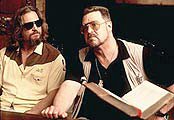 Explaining the plot is pointless. Let's simply say The Dude encounters a rich, handicapped old man who wants him as a bag man because his young, promiscuous wife (who appears in porn films) has been kidnapped. The Dude meets pornographers, German nihilists and assorted other characters along the way.
Explaining the plot is pointless. Let's simply say The Dude encounters a rich, handicapped old man who wants him as a bag man because his young, promiscuous wife (who appears in porn films) has been kidnapped. The Dude meets pornographers, German nihilists and assorted other characters along the way.He's aided by some friends, most notably by Walter (John Goodman) a Vietnam veteran with issues.
There are a host of funny, clever scenes in the film. But as mentioned, nothing hangs together very well. The movie looks great but often loses its pacing for the sake of cleverness, either in terms of getting an interesting looking visual or, in some cases, a characterization that works against it.
For example, Bridges' character is generally stoned or otherwise unable to articulate what he is wants to say. While it's appropriate for the character, the characterization slows the movie, clogs it. It's an idea (this kind of man in this kind of situation) that likely looks great on paper but, on film, doesn't quite click.
I suppose this all points to a larger problem, the lack of a narrative arc. The characters, by and large, are the same people at the end as they were at the beginning. So it doesn't ever go anywhere.
In the end, while there is no denying there have been funny moments, The Big Lebowski isn't satisfying. It has the feel of a young person showing off how clever he can be. There is a lot of style but not a great deal of substance.
I found it more frustrating than anything else though while watching it I also had the sense it was probably a film the Coens had get out of their system in order to move on. In movies that followed The Big Lebowski the same cleverness still appears but, in those films, it serves the movies they make rather than itself.
Tag: Movies, DVDs, Big Lebowski

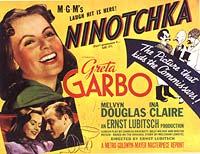
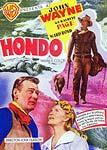
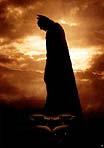

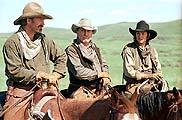
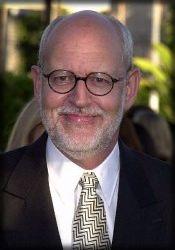
 I loved
I loved